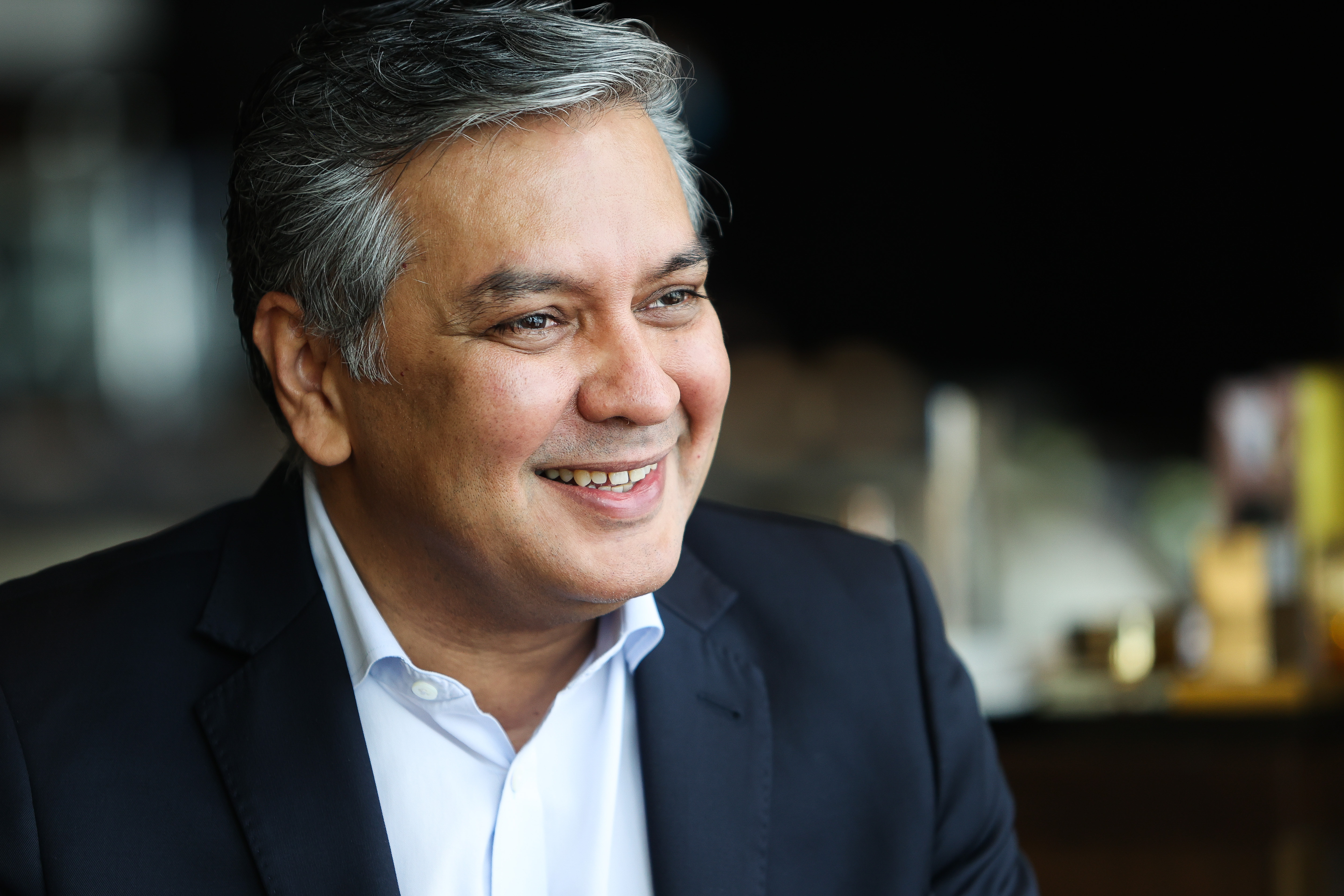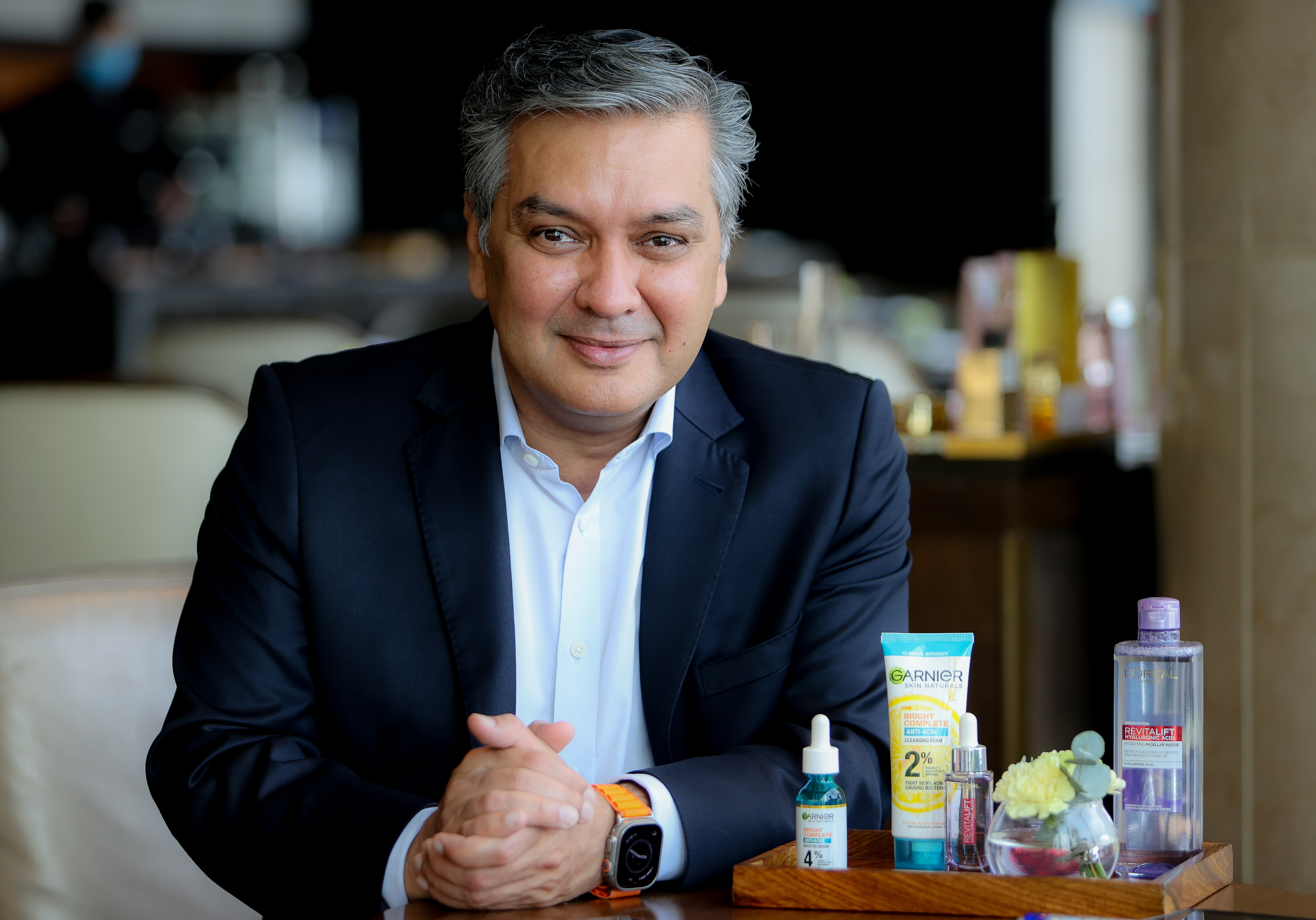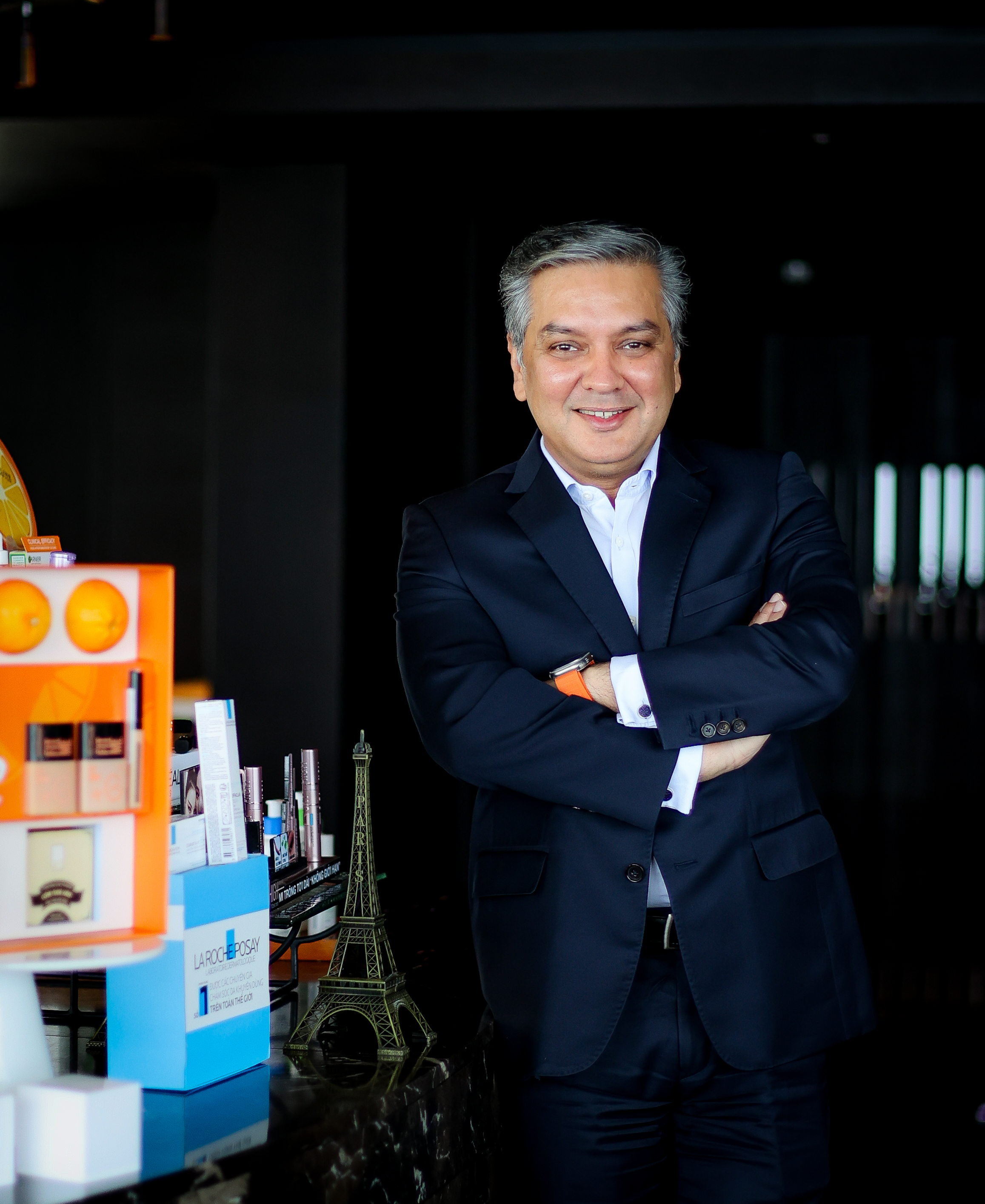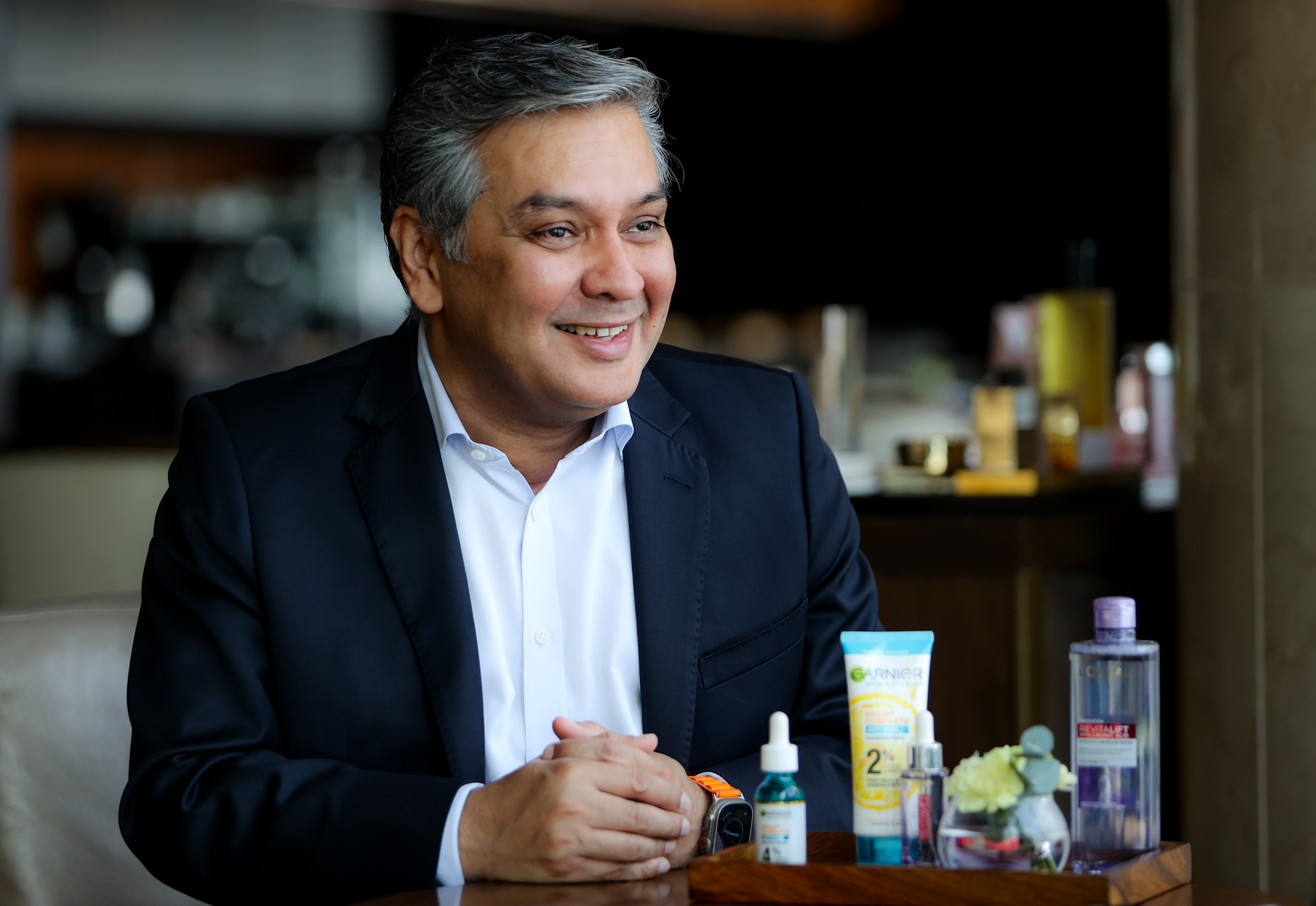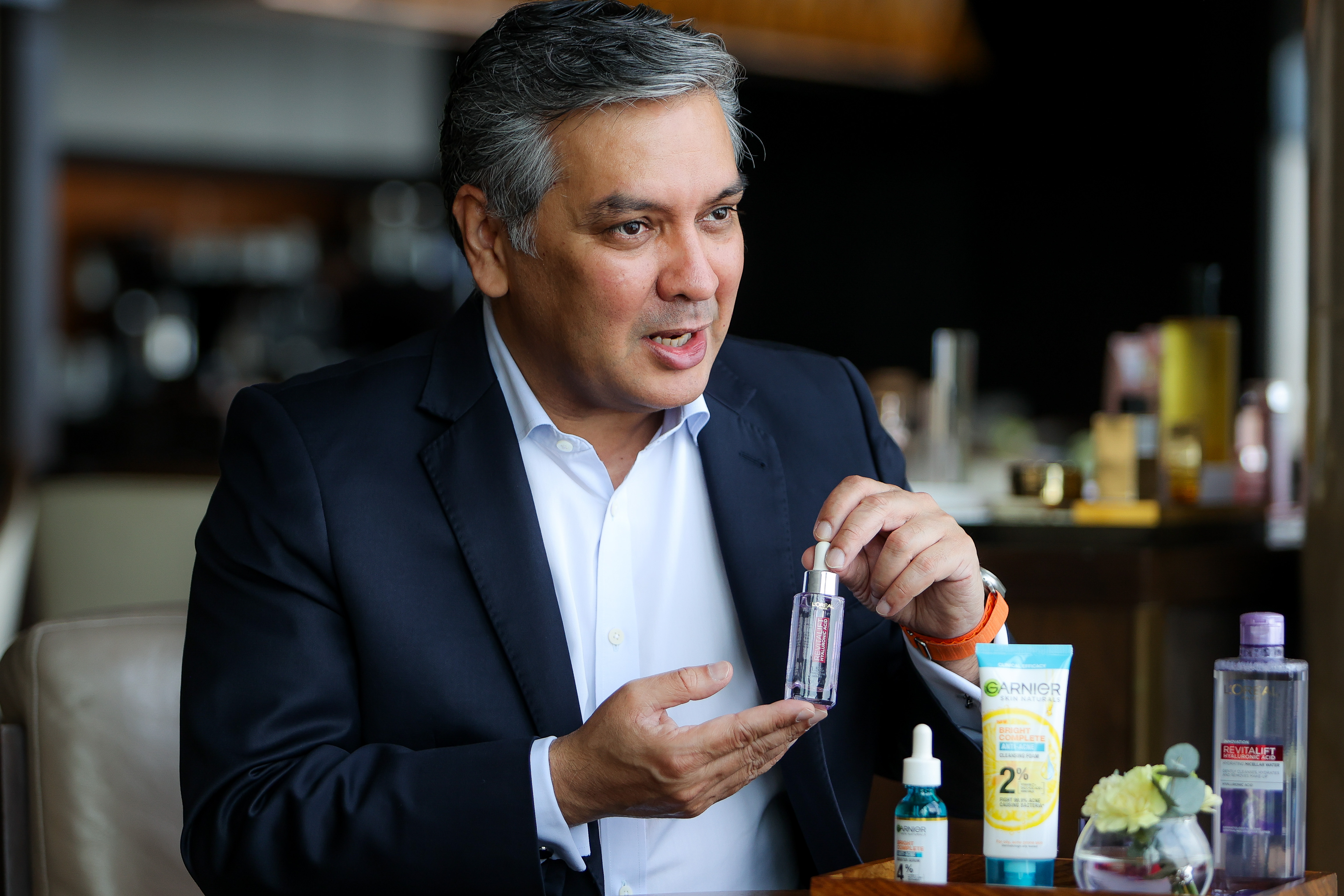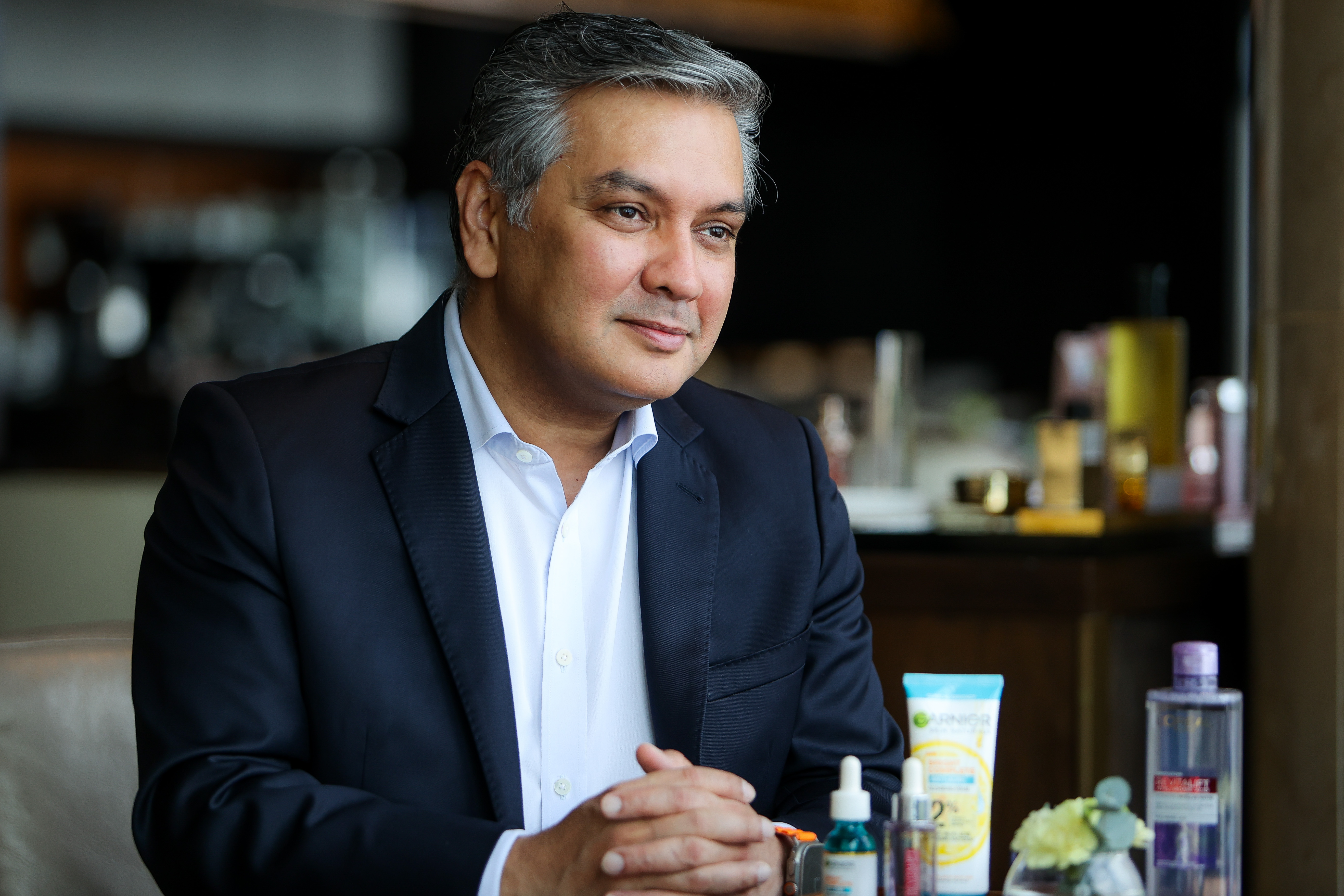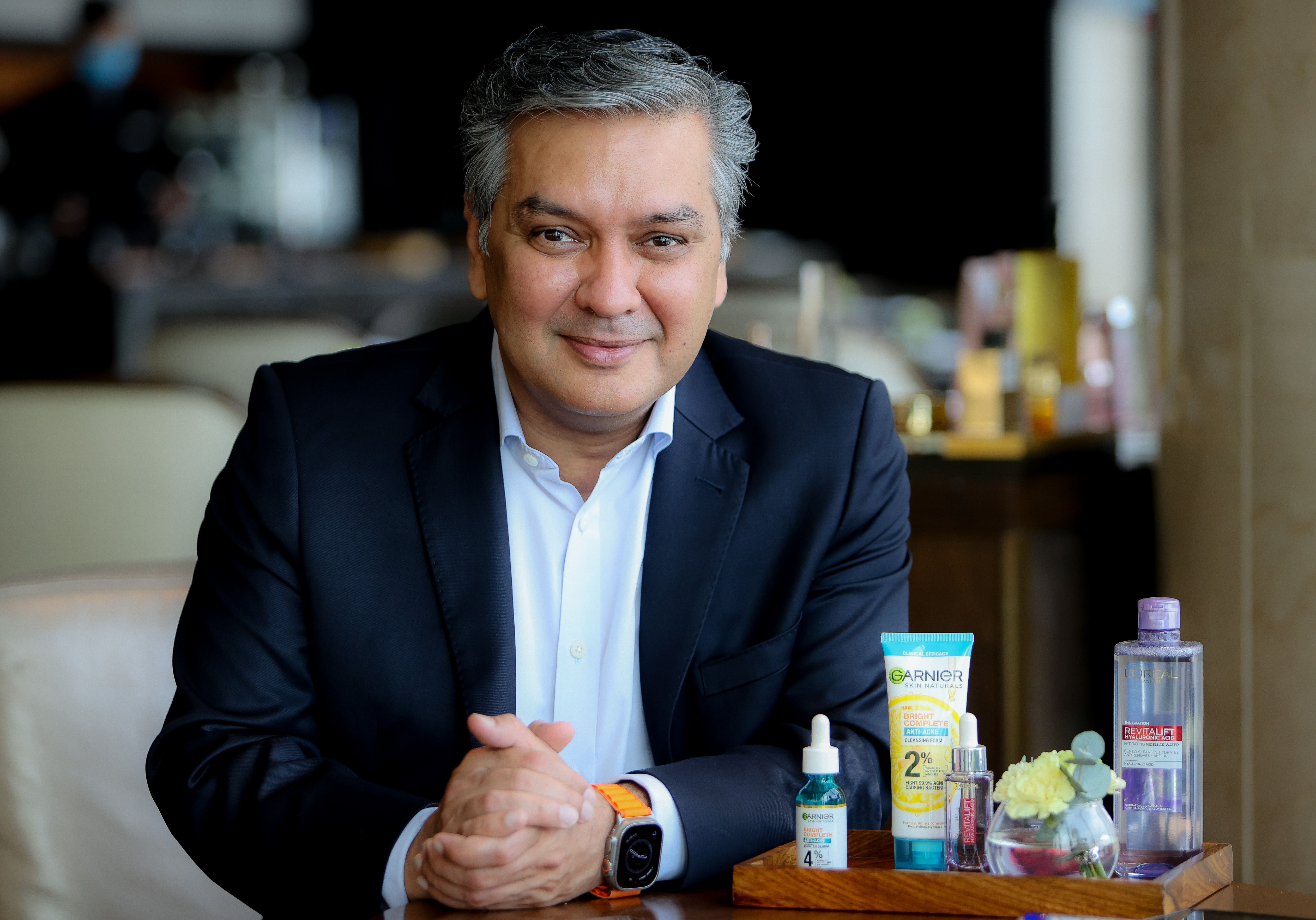With 100 million people and over half of the country being Gen Z and millennials, Vietnam is considered one of the most dynamic and pioneering countries in the South Asia Pacific, Middle East and North Africa (SAMPMENA) zone, where L’Oréal’s local subsidiary is driving innovative solutions and a high sense of social responsibility within the beauty industry.
|
|
| Vismay Sharma, L'Oréal president of South Asia Pacific, Middle East, and North Africa (SAPMENA) |
In mid-July, Vismay Sharma, L’Oreal SAPMENA president visited Hanoi, the capital of Vietnam.
This trip left him with many positive impressions regarding the market potential and the future of the beauty industry in the country.
Sharma gave Tuoi Tre News an interview.
Vietnam is a big opportunity
You have been visiting many markets annually. How do you assess the beauty industry market in Vietnam for this trip?
For L’Oréal, Vietnam is a very strategic market with 100 million people.
From an economic perspective, Vietnam has been experiencing rapid growth for many years, and this trend is expected to continue.
As the economy flourishes, consumers have more purchasing power, leading to an increased desire to enhance their beauty, health, and well-being.
Let's take skincare as an example. The fact that consumers are spending more money on premium (skincare) products and experiences represents a significant opportunity for L’Oréal, as we invest heavily in research and technology.
L’Oréal Groupe has around 4,000 scientists and is investing at least one billion euros annually in R&D to develop new products with enhanced formulations, and we take pride in introducing these products to Vietnam.
We intend to maintain this trend because Vietnam is an important market, having a young consumer base and an increasingly prosperous society, which will drive an increase in demand. All of these factors contribute to our optimism in this market.
Where does Vietnam currently stand in your zone?
I oversee a region known as SAPMENA, an acronym for South Asia Pacific, Middle East, and North Africa. This expansive area comprises 35 countries and territories where L’Oréal products are available, spanning from New Zealand to Morocco.
|
|
| Vismay Sharma, L’Oreal SAPMENA president, says, “L’Oréal’s subsidiary in Vietnam showcases remarkable dynamism and creativity.” |
Vietnam is one of the fastest-growing markets in SAPMENA, positioning the country as a key player in L’Oréal’s strategic planning.
The country is a highly digital market, with e-commerce playing a crucial role, including social commerce (selling products through social networks).
Vietnamese people are also entrepreneurial and quick to innovate, coming up with new solutions and ideas.
L’Oréal’s subsidiary in Vietnam showcases remarkable dynamism and creativity, serving as a source of fresh ideas that we then replicate across multiple countries in the region.
To put it simply, Vietnam is a significant base to shape the future of beauty and our operations. A prime example is our exploration of social commerce.
It was in Vietnam that we first experimented with this concept, refining the model before implementing it in other countries in SAPMENA.
So Vietnam holds great importance for us beyond consumer demand and business growth, its spirit of innovation is also a key factor.
Beauty tech for good
You just mentioned technology and creativity in the beauty industry. How does L'Oreal utilize beauty technology to improve people's lives?
Apart from utilizing technology to create better products, we also leverage it to enhance user experiences.
For example, our La-Roche Posay brand offers a technology called Spotscan, an AI-based solution developed in collaboration with dermatologists, using actual consumer photos to assess the severity of acne.
With this technology, users can gauge the severity of their acne and discover appropriate solutions.
|
|
| “The future of the beauty industry will be shaped by technologies,” remarks Vismay Sharma, L’Oreal SAPMENA president. |
Similarly, with our YSL brand, we have a device that enables users to create their custom lipstick color called Rouge Sur Mesure.
For instance, if you take a picture of a dress and want a lipstick color that matches this dress, the device generates a lipstick shade that corresponds to your desired color.
And the good news is that it will come to Vietnam.
We also have the Beauty Tech for Good program, where we work with startups to innovate and shape a brighter future for the planet, society, and the beauty industry.
For example, we partnered with a Swiss startup called Gjosa to develop an innovative showerhead, which breaks water droplets into fast-moving micro drops, resulting in a remarkable 60-percent reduction in water usage within L’Oréal partner salons.
We plan to install this showerhead in approximately 5,000 salons across SAPMENA, saving nearly 800 million liters of water annually.
The future of the beauty industry will be shaped not only by quality products but also by technologies that make our lives better.
Is L'Oreal collaborating with any startups in Vietnam?
We're working with a lot of startups in Vietnam, both for building influence, data, and consumer targeting.
And we are continuously seeking additional startups in Vietnam to work with, particularly those with innovative solutions that can assist us in better serving our customers.
Vietnam can quickly embrace new innovations because its young and digitally savvy population swiftly adapts to changing circumstances.
This provides us with the tremendous energy to explore new opportunities here.
Coming to Vietnam, we are filled with enthusiasm as we witness the implementation of novel ideas.
Beauty is a resilient industry
The COVID-19 pandemic has passed for a year; however, its effects seem to be still evident. Do you believe the beauty industry can continue to thrive?
All industries and countries have been affected by the COVID-19 pandemic, and the beauty industry also encountered challenges in certain categories, such as makeup and perfume, which are products people commonly use when going out.
However, there were good growth categories, such as skincare.
As people stayed home and became more health conscious, skincare became a focal point, which explains the attention received on our dermatological beauty product lines like La-Roche Posay.
As a corporation with diverse product lines, our business remained resilient during COVID-19.
And now that the economy is recovering, we see an opportunity for further growth. It can be said that the beauty industry is a highly resilient industry.
Regardless of economic fluctuations, beauty is an industry that is relatively less affected because everyone wants to invest in their health and beauty.
Gen Z group is emerging as a new consumer force. This generation not only seeks reliable and effective products, but also demands transparency and social responsibility from the brands they use. How does L'Oreal engage with this customer group?
Being young consumers, Gen Z have increasingly demanding expectations.
As a father of two Gen Z children, I can personally attest to this (laughs), but I think it's a good thing.
The generation is helping corporations demonstrate greater social responsibility.
|
|
| “L’Oréal initiated sustainability efforts back in 2005,” says Vismay Sharma, L’Oreal SAPMENA president. |
L’Oréal was committed to sustainability well before it was widely discussed. L’Oréal initiated sustainability efforts back in 2005 by measuring CO2 emissions from our offices, factories, and warehouses.
Currently, we are implementing the L’Oréal For The Future program for the 2020-30 period.
We are being strict with not only our own operations but also with our partners, seeking solutions that have positive impacts on society and the environment.
We promote carbon neutrality and reduce plastic waste in our operations.
As a case in point, all bottle plastics used by our factories in SAPMENA come from recycled sources. Also in Vietnam, we work with UNESCO to restore natural habitats in a biosphere region.
One highly successful program, first initiated in Vietnam and now globally, is L’Oréal’s Beauty for a Better Life.
As part of our commitment to social responsibility and inclusive growth, we have provided beauty vocational training and enabled over 10,000 women to establish their own beauty salons and become hairdressers.
Thus, L’Oréal has pioneered many programs to support women’s role in society and for planet protection since its establishment in the market. However, there seems to be a common misunderstanding regarding the essentiality of the beauty industry, that cosmetics are for the rich or they are non-essential. What can you say about it?
Indeed, this is a misunderstanding because beauty is a force for good, desired by everyone, not just the wealthy.
Everyone has beauty aspirations and wants to feel confident.
Let’s take shampoo products as an example: Around 95 percent of consumers in Vietnam use at least one shampoo product.
Almost everyone needs and uses shampoos, ranging from expensive to more affordable options that cater to the masses.
And I'm not only speaking on behalf of L’Oréal but also on behalf of the beauty industry as a whole.
|
|
| “The beauty industry contributes to job creation,” states Vismay Sharma, L’Oreal SAPMENA president. |
We do not only create beauty products for people, but we also create jobs. The 10,000 women beneficiaries from the L’Oréal Beauty for a Better Life program will have an impact on at least 10,000 families, not just themselves.
We also provide training for thousands of hairdressers each year, and these hair salons offer services to consumers from all walks of life.
The beauty industry contributes to job creation, generates economic activity, and supports well-being that also helps the economy.
So beauty has a positive impact on the environment, community, economy, and people's lives.
That’s why I am proud to have worked in this industry for almost 30 years.
Working in the beauty industry for nearly 30 years, do you find it difficult for men? What has attracted you to the industry?
I have worked for L'Oreal for 29 years, since 1994, so I can say that I love working in the beauty industry.
However, what attracted me more were L’Oréal’s values.
I joined the company after realizing that it is committed to empowering employees and that it has high ethical business values.
|
|
| “Beauty is a universal need that extends to men and women of all ages, races, and social classes,” according to Vismay Sharma, L’Oreal SAPMENA president. |
Is beauty for men difficult? I think this question reflects yet another misunderstanding because when I look around in L'Oreal, I see that almost half of the employees worldwide are male and they are thriving.
In certain departments, there may be more female employees and vice versa. Ultimately, beauty is a universal need that extends to men and women of all ages, races, and social classes.
At L’Oréal, we have set ourselves the mission of "creating beauty that moves the world."
This mission goes beyond simply making lipsticks or skin lotions; it aims to make a significant positive impact on changing lives and preserving the planet.
We strive to create opportunities for our employees, consumers, and partners to achieve this mission sustainably and ethically.
Thank you for the discussion!



